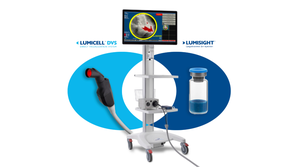Manufacturers should help hospitals avoid the costly mismanagement of explanted medical devices.
April 7, 2022

Tom Flynn, Vice President, SpendMend
Medical devices are sometimes recalled or fail before their life expediency and need to be replaced. Manufacturers offer warranty credits when this occurs. If those credits are equal to or exceed 50% of the original cost of the device, those monies need to be reported to CMS as over payments. If the warranty is 49% or less, the hospital may keep the warranty monies.
For instance, the end-to-end procedure for processing an explant requires precise coordination among up to seven different departments and as a result, it often fails. Through our work over the past decade, we have observed that mismanaging a warranty credit can cost a hospital more than $50,000 per each mismanaged warranty credit. The costs scale up very quickly, creating a material impact to the hospital’s bottom line.
One of the major breakdowns we see in the process is when the hospital allows the medical device company sales rep to complete the warranty credit process or to take possession of the medical device and return it. We hear from hospitals all the time that this is a common procedure. Often the medical device sales rep is trying to help and feels as though their assistance could save the hospitals time and effort. This well-intended gesture, if mismanaged or delayed past the 30-45 day return window, could be costing hospitals in the long run.
The Office of Inspector General—in their 2016 and 2020 audits of this process at over 1000+ hospitals—reported in their findings that “critical gaps resulted” whenever hospitals relied on manufacturer device reps to manage the explant return and/or the warranty credit process.
It is important to keep in mind that the explanting hospital will be fined and penalized for noncompliance, but not the manufacturer reps.
In our effort to learn more and pass the education along to our hospital clients, we spoke with several top medical device manufacturers across the U.S. and asked them for a little clarity on their role in managing warranty credits and physical product returns. For the most part, manufacturers understood the risk of their sales reps taking possession of products. Take a look at the following commentary from a Top 3 manufacturer, in their own words:
…as far as the rep not assisting in the return, while a rep may assist with portions of completing the warranty form or the return paperwork and help box the product up, it is ultimately the responsibility of the hospital to complete these warranty requirements. A rep also may never take possession of the product or mail it for them.
We would not venture to advise on policy, but we do strongly encourage medical device manufacturers to consider taking a more active role in educating their reps on the repercussions of promising processing warranty credit forms and/or returning explanted medical devices on behalf of hospitals. Their mismanagement of the procedure and/or the delay of a return could be very costly to a hospital, and that isn’t in anyone’s interest.
In our view, the two best approaches are: 1) To educate sales reps on your specific procedure (if one exists) for returning and reporting explanted devices on behalf of hospitals so that no errors occur and no hospitals will ever be charged for mismanaged explants; or 2) To clearly advise your sales reps that they are never to process credits for hospitals or take possession of any explanted devices.
You May Also Like


